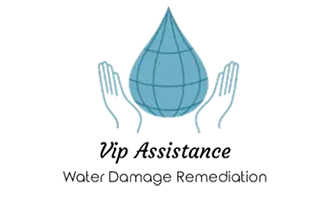HOW CAN YOU GET RID OF MOLD?
People employ a variety of methods to eliminate mold. However, not all these techniques are effective. Let’s look at different mold removal solutions and determine which one is the ideal way to get rid of this nuisance.
Cleaning
If the mold covers a small area, scraping away the visible mold with a brush and spraying hydrogen peroxide may suffice. However, it is only suitable for small areas and is often only a temporary treatment, as mold may emerge again.
Painting Over Mold
You may also think to paint over the mold to eliminate the dark black spots, but this will not eradicate the mold problem or stop it from developing further. It is merely covering up the problem and not a solution to it. This is a short remedy for those ugly spots, but it will not address the root of the problem.
Killing Mold
Killing mold is a more long-term strategy for mold removal. It is a complicated process, and you may be bewildered since it may be challenging to determine the right chemicals and processes to kill mold.
What could be better than doing the deed using ingredients you already have on hand? Here are some of the commonly used everyday items that you may use to kill mold. Let’s find out the efficiency of each product in killing mold.
Does bleach kill mold?
You can use bleach to eliminate mold on the tub and tile surfaces; however, it cannot help with the mold on porous surfaces. Bleach may not be the best solution since it cannot penetrate deep into porous surfaces to eliminate mold growth. Moreover, bleach is toxic to both humans and pets.
Does baking soda kill mold?
Baking soda is harmless and can be useful to kill mold by subjecting it to an alkaline environment. However, baking soda may not be effective for all mold species, and it cannot kill mold in porous surfaces.
Does hand sanitizer kill mold?
Hand sanitizers can kill mold with its active ingredient ethyl alcohol, but they can only prevent fungal growth on the surface and not in porous materials. You may have to look for other options if the mold has spread extensively.
Does Lysol kill mold?
Lysol spray can kill 99.99% of all bacteria in your home, including mold. It is, however, impossible to eradicate mold from areas where the object has begun to deteriorate noticeably. Moreover, when the mold growth is severe, you need professional help instead of Lysol.
Does KILZ kill mold?
KILZ paint can be used as a prevention measure to inhibit the emergence of mold, but it cannot kill the mold already present. You can use KILZ in various areas to keep them safe from mold but it can’t help in eliminating it.
Does Clorox kill mold?
Clorox is a sort of bleach that, as mentioned above, can eliminate mold on superficial areas but cannot do it on underlying surfaces. If the mold is more than surface deep, then Clorox is not an effective solution.
Does UV light kill mold?
UV light may kill mold in the air and on surfaces, even invisible airborne spores, by damaging the nucleic content. However, it can’t treat porous surfaces, and can be inconvenient to use.
Does ammonia kill mold?
Ammonia, like bleach, can kill mold on hard and nonporous surfaces, but it is a harsh and toxic substance that may not be a safe alternative, especially with kids around. If you are health conscious, avoid using it.
Does alcohol kill mold?
Rubbing alcohol penetrates the cellular membrane of the mold-causing fungus, allowing the alcohol to kill the mold. However, alcohol does not work effectively for mold spores.
There are many substances that can be used to treat mold, all of which are efficient in the job in their own way. You may believe that it is the best approach to get rid of mold. However, it is important to remember that eliminating mold simply removes the mold that is present and does not guarantee that it will not reappear. So, after all these hassles, your home might be vulnerable to mold once more.
MOLD REMEDIATION
While each of the techniques mentioned above effectively removes mold in its own way, they are still not ideal solutions. Mold remediation is the professional option to remove mold from your home. This is arguably the best and most efficient way to get rid of mold.
Mold remediation is one of the most effective methods for permanently getting rid of mold. It does not offer a temporary solution as killing or cleaning the mold does but instead addresses the problem at the root to ensure it does not recur. Mold remediation also effectively eradicates the invisible airborne spores or mold hiding in porous surfaces, which other procedures fail to achieve.
Mold remediation typically includes the removal of moldy porous materials such as drywall. It may also include the washing and disinfection of rugs and other belongings if they can be salvaged. This procedure needs to be done by a professional to ensure that all the mold in your home is eliminated and will not recur.
Although the results are certain, mold remediation may appear to be a more grueling task since the contaminated portions must first be removed and then cleaned, which may be time-consuming. However, with the right assistance from professionals, this process can be completed without a hassle.
If you are concerned about mold and its consequences, you can now relax since FDP Mold Remediation has you covered.
